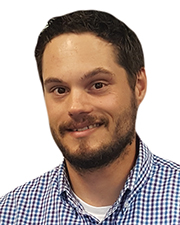2020 Ones to Watch: Elliott Hambrook, P.E., Senior Engineer at Gale Associates, Inc.

Gale Associates, Inc.
What led you to your current profession? From an early age, I had an interest in the functional aspects of architectural design, using critical thinking to solve problems. I was fortunate enough to receive computer-aided design training in high school, which led me to briefly consider an architecture program. I was accepted into the College of Engineering at Northeastern University and decided to major in Civil Engineering. Through the cooperative learning program at NEU, I was introduced to the niche world of building enclosure design and consulting and haven’t looked back.
Who or what inspires you? Integrity, doing the right thing, and standing up for what you believe in, especially when it runs contrary to personal benefit and/or popular opinion. I look to the best examples in our society for inspiration: Malala Yousafzai, Greta Thunberg, Barack Obama. I strive to make choices I can be proud of later in life. In my career, I am likely to revisit some of the projects that have been completed in the last few years. Doing the right thing for our clients right now helps our projects stand the test of time and makes life easier when it comes time to reevaluate.
If your life were made into a movie, what actor would you want to portray you? Rami Malek. I think his method approach to acting would be best suited to represent the nuances of my life. Besides, he’s already played a character named Elliot in a TV series!
What advice can you offer to someone who is interested in a career in your industry? Get some hands-on experience in construction, learn the science behind building materials through engineering, and understand how different systems come together in design. Engineered assemblies and details should be practical and efficient, and must consider constructability and transitions to other systems. Understanding the sequence of work, the building science, and potential conflicts will result in a better design.
How have your life experiences impacted who you are professionally? Interfacing between design and construction teams is often a source of conflict that I used to approach by establishing strict positions and rigid interpretations. While I believe in defending sound engineering principles and uncompromising ethics, I’ve grown personally throughout my career to have a better understanding and approach to the people, the issues, and differences of opinion that help to steer conversations toward common solutions through the pursuit of clear facts and documentation. Conflicts still exist on almost every project, but my experiences help me to acknowledge the role I also have to play in stoking or smothering the fires.
Check out the New England Real Estate Journal's 2025 Fall Preview Spotlight
Explore our Fall Preview Spotlight, featuring exclusive Q&As with leading commercial real estate professionals and in-depth byline articles on today’s most relevant market topics. Gain insight into the trends, challenges, and opportunities shaping New England’s commercial real estate landscape this fall.


How long should I hold a property for it to qualify as an investment property in connection with a 1031 tax-deferred exchange? - by Brendan Greene and Mark McCue

30 years on South Coast Rail: A journey to connect Southeastern Mass. with commuter rail - by Rick Carey

Shallow-bay wins on 495/128: A renewal-driven market with a thin pipeline - by Nate Nickerson











.png)
